33 Arthritis-Soothing Foods Recommended by Rheumatologists
Tired of arthritis dictating your days with persistent aches and stiffness? While medication is a key ally, imagine unlocking potent, natural relief right from your kitchen—backed by rheumatologists. What if the path to easing joint inflammation and reclaiming joyful movement was paved with delicious, everyday foods? It's more than possible! Specific culinary delights are brimming with powerful anti-inflammatory compounds that can profoundly support your joint health and overall well-being. Recognizing the power of food as medicine, we’ve significantly expanded our expert-guided list, now unveiling 33 flavorful treasures that can help soothe arthritis symptoms. Prepare to transform your grocery list into a vibrant arsenal against inflammation, discovering how strategic, tasty choices can make your kitchen a true partner in your journey towards greater comfort and mobility.
1. The Power of Fatty Fish

Fatty fish, such as salmon, mackerel, and sardines, are rich in omega-3 fatty acids, which are renowned for their anti-inflammatory properties. These essential fats have been shown to reduce joint pain and stiffness in individuals with arthritis. Omega-3s work by decreasing the production of inflammatory compounds in the body, thereby alleviating symptoms. Rheumatologists often recommend consuming fatty fish at least twice a week to reap these benefits. Beyond their anti-inflammatory properties, fatty fish are also an excellent source of vitamin D, which is crucial for bone health. Incorporating these fish into meals can be as simple as grilling or baking them with herbs and lemon for a delicious, arthritis-friendly dish.
2. The Versatility of Olive Oil
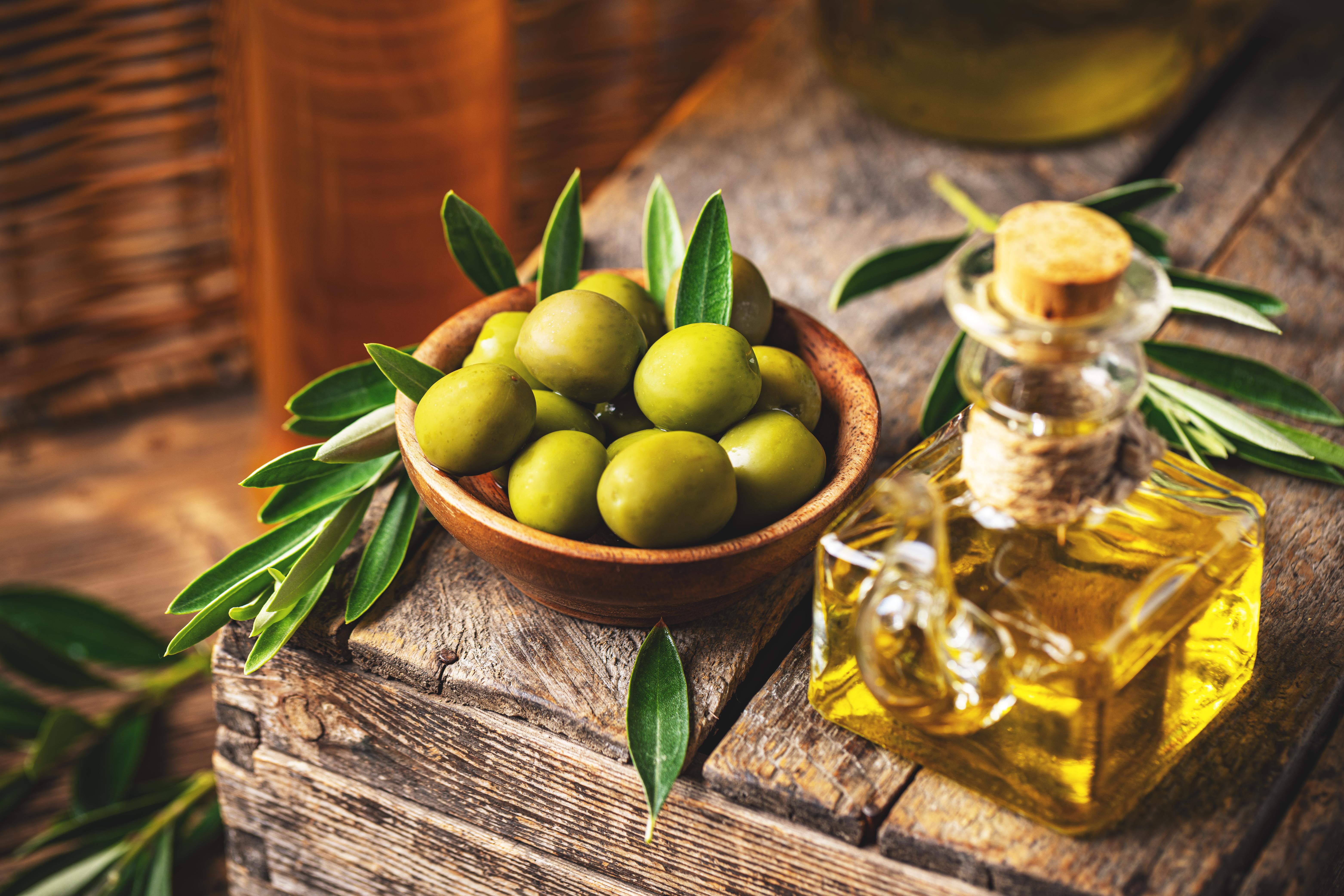
Olive oil, particularly extra virgin olive oil, is a staple in the Mediterranean diet, which is associated with numerous health benefits, including reduced inflammation. This oil contains oleocanthal, a compound with similar anti-inflammatory effects as non-steroidal anti-inflammatory drugs (NSAIDs). Regular consumption of olive oil can help decrease inflammatory markers in the body, offering relief to arthritis sufferers. Its versatility in cooking makes it easy to incorporate into a variety of dishes, from salad dressings to sautéed vegetables. Choosing high-quality olive oil ensures maximum benefits, making it a valuable addition to an arthritis-friendly diet.
3. The Nutrient-Rich World of Leafy Greens
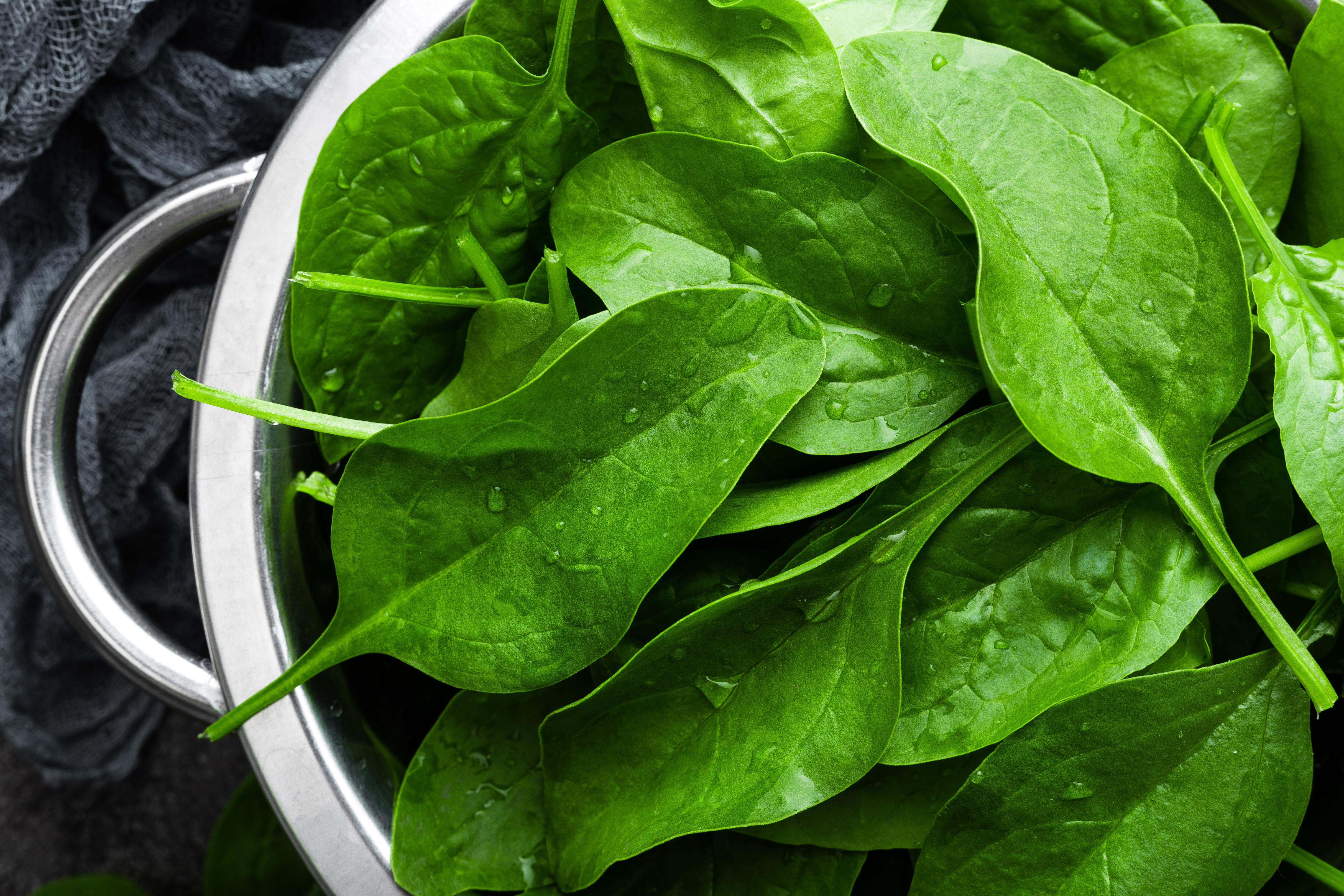
Leafy greens, such as spinach, kale, and Swiss chard, are packed with nutrients that support joint health. These vegetables are high in antioxidants, including vitamins A, C, and K, which help protect cells from oxidative stress and inflammation. Additionally, leafy greens are a good source of calcium and other minerals essential for maintaining strong bones. Rheumatologists often recommend incorporating a variety of these greens into daily meals to maximize their health benefits. Whether enjoyed in salads, smoothies, or as a side dish, leafy greens offer a delicious and nutritious way to support arthritis management.
4. The Healing Properties of Turmeric
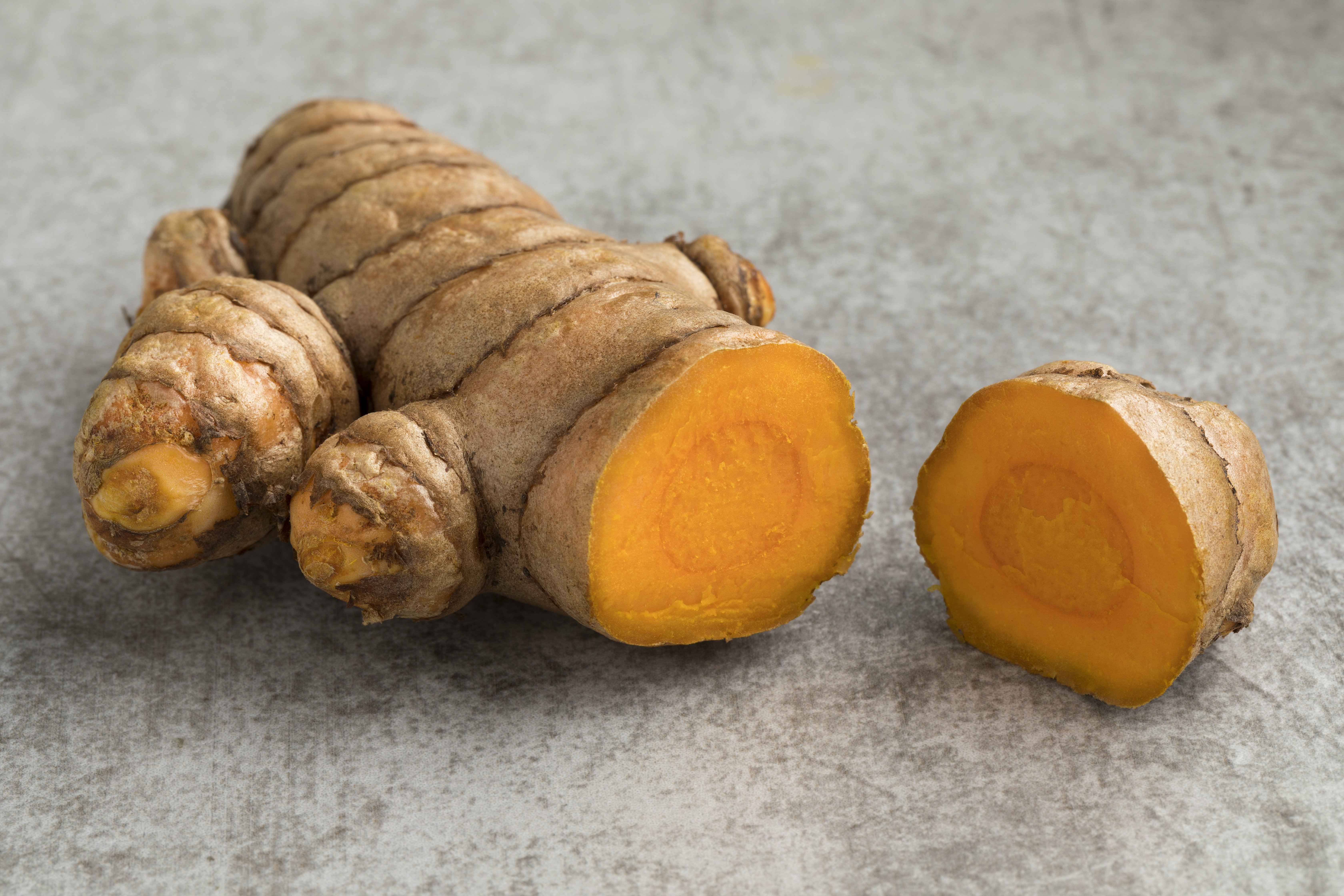
Turmeric, a bright yellow spice commonly used in curry dishes, has been used for centuries in traditional medicine for its anti-inflammatory properties. The active compound in turmeric, curcumin, has been shown to reduce inflammation and pain in individuals with arthritis. Rheumatologists often suggest incorporating turmeric into the diet as a natural way to complement conventional treatments. Turmeric can be added to soups, stews, and even smoothies for a flavorful and health-boosting addition. For enhanced absorption, it is beneficial to pair turmeric with black pepper or fats, as these can increase curcumin's bioavailability.
5. The Gut-Health Benefits of Fermented Foods
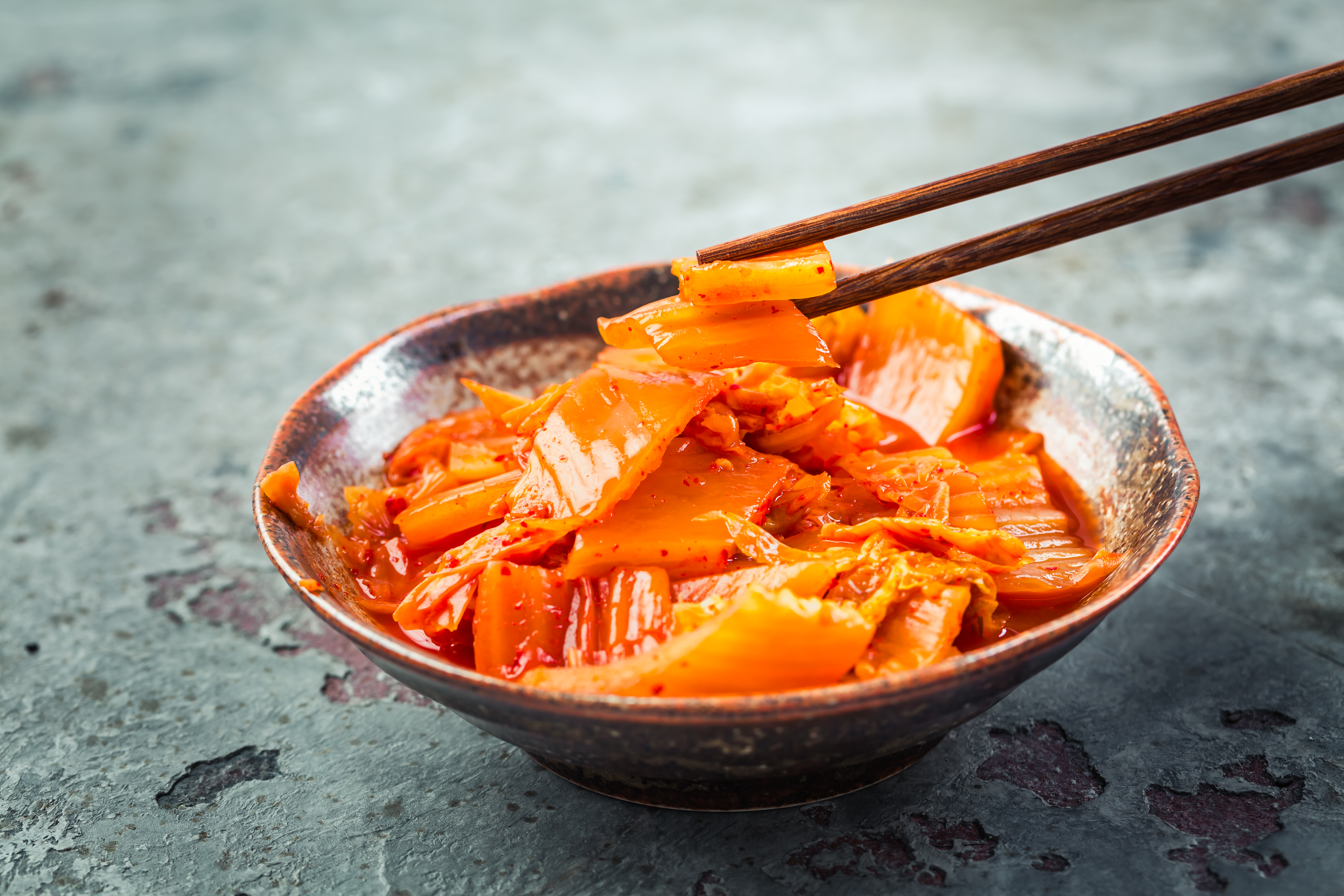
Fermented foods, such as yogurt, kefir, sauerkraut, and kimchi, are rich in probiotics, which are beneficial bacteria that support gut health. A healthy gut microbiome is linked to reduced inflammation and improved immune function, both of which are important for managing arthritis symptoms. Rheumatologists often emphasize the importance of gut health in overall well-being and suggest incorporating fermented foods into the diet to promote a balanced microbiome. These foods can be enjoyed as snacks or incorporated into meals, providing a tangy and nutritious addition to an arthritis-friendly diet.
6. The Anti-Inflammatory Effects of Berries

Berries, including strawberries, blueberries, and raspberries, are rich in antioxidants and polyphenols, which have been shown to reduce inflammation and oxidative stress. These fruits are also a good source of vitamin C, which is important for collagen production and joint health. Rheumatologists often recommend consuming a variety of berries to take advantage of their diverse health benefits. Berries can be enjoyed fresh, frozen, or dried, and make a delicious addition to smoothies, yogurt, or oatmeal. Their sweet and tangy flavors make them a versatile and enjoyable way to support arthritis management.
7. The Joint-Boosting Benefits of Nuts and Seeds
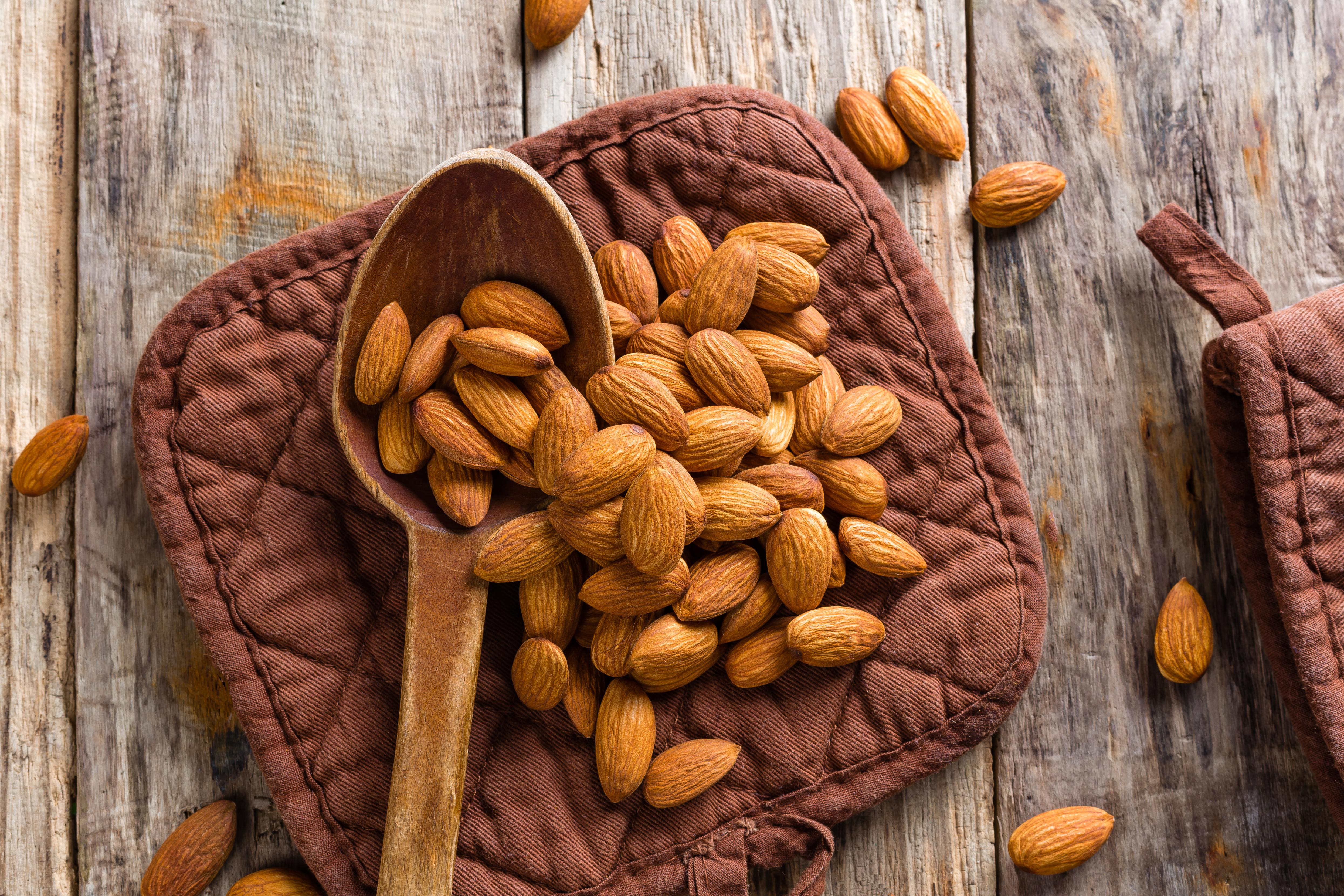
Nuts and seeds, such as almonds, walnuts, flaxseeds, and chia seeds, are excellent sources of healthy fats, protein, and fiber. They also contain anti-inflammatory compounds, such as omega-3 fatty acids and antioxidants, which can help reduce arthritis symptoms. Rheumatologists often suggest incorporating a variety of nuts and seeds into the diet to support joint health and provide sustained energy. These foods can be enjoyed as snacks, added to salads or yogurt, or used as a topping for oatmeal or smoothies. Their crunchy texture and rich flavors make them a satisfying and nutritious addition to any meal.
8. The Bone-Strengthening Power of Dairy

Dairy products, such as milk, cheese, and yogurt, are rich in calcium and vitamin D, both of which are essential for maintaining strong bones. Adequate calcium intake is particularly important for individuals with arthritis, as it helps prevent bone loss and supports joint health. Rheumatologists often recommend incorporating dairy into the diet to ensure sufficient calcium and vitamin D intake. For those who are lactose intolerant or prefer non-dairy options, fortified plant-based milks and yogurts can provide similar benefits. Whether enjoyed on their own or incorporated into recipes, dairy products offer a delicious and nutritious way to support bone health.
9. The Heart-Healthy Benefits of Whole Grains
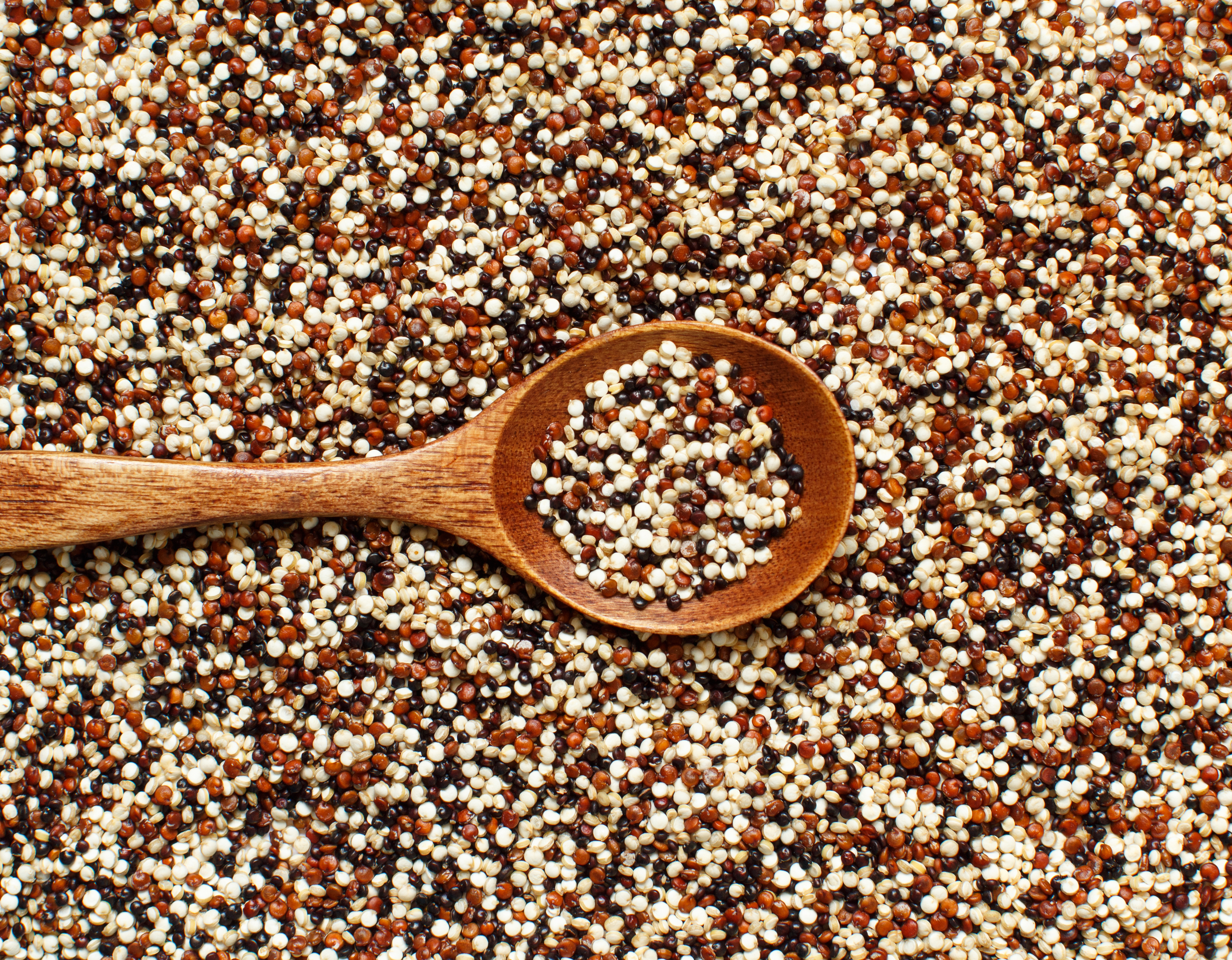
Whole grains, such as oats, quinoa, and brown rice, are rich in fiber, vitamins, and minerals that support overall health and reduce inflammation. These grains provide a steady source of energy and help maintain stable blood sugar levels, which is important for managing arthritis symptoms. Rheumatologists often recommend choosing whole grains over refined grains to maximize their health benefits. Whole grains can be enjoyed as a base for salads, in soups, or as a side dish, providing a hearty and satisfying addition to an arthritis-friendly diet.
10. The Immune-Boosting Power of Garlic
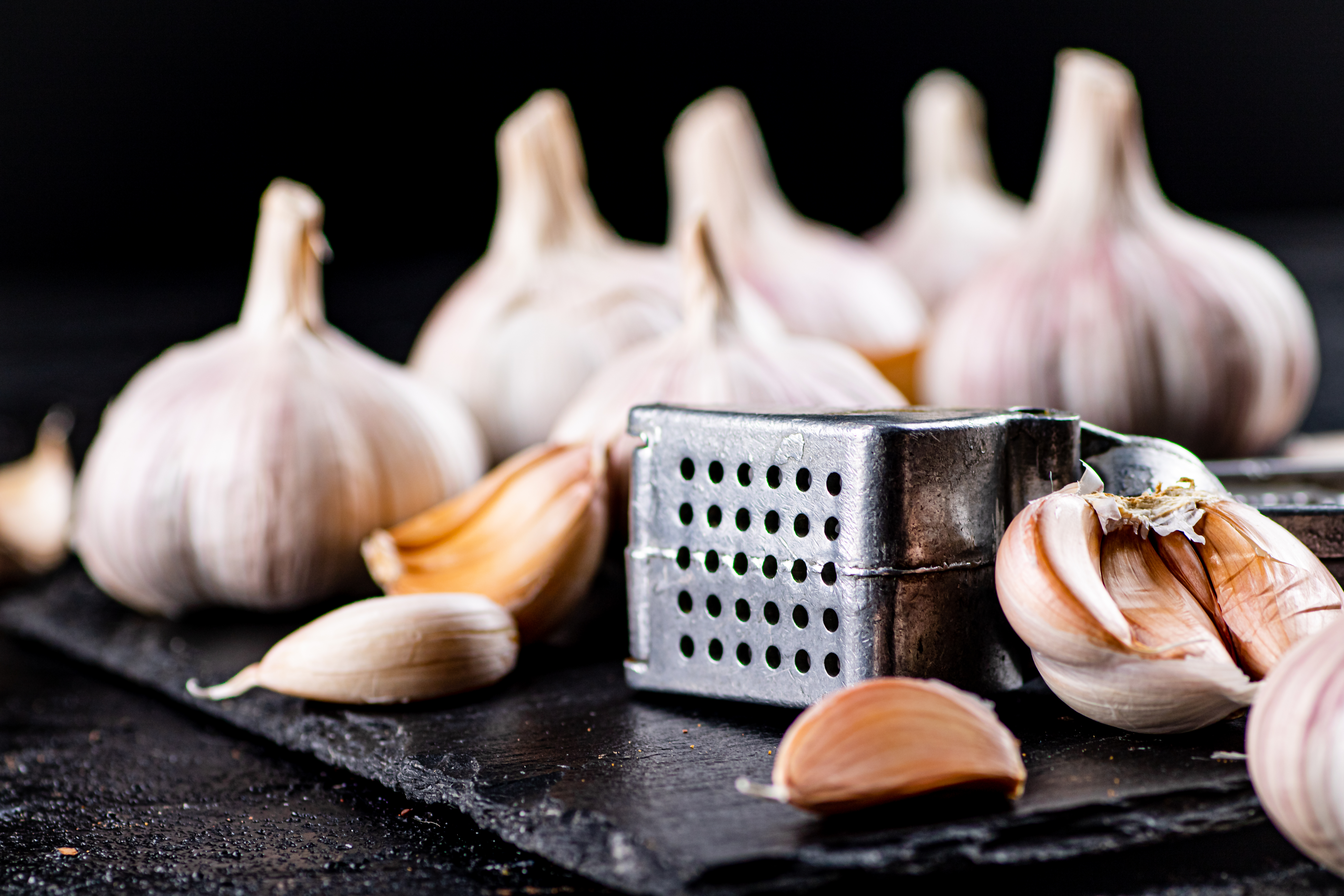
Garlic, a pungent and flavorful herb, has been used for centuries for its medicinal properties. It contains sulfur compounds, such as allicin, which have been shown to reduce inflammation and boost immune function. Rheumatologists often suggest incorporating garlic into the diet as a natural way to support overall health and manage arthritis symptoms. Garlic can be used to flavor a variety of dishes, from soups and stews to roasted vegetables and pasta, adding a delicious and health-boosting element to meals.
11. The Soothing Effects of Herbal Teas

Herbal teas, such as ginger, green, and chamomile tea, offer a soothing and anti-inflammatory option for individuals with arthritis. Ginger tea, in particular, contains compounds that have been shown to reduce inflammation and pain. Green tea is rich in antioxidants, which help protect cells from damage and support overall health. Rheumatologists often recommend incorporating herbal teas into the daily routine as a calming and health-promoting beverage. These teas can be enjoyed hot or cold, providing a comforting and flavorful way to support arthritis management.
12. The Detoxifying Benefits of Cruciferous Vegetables
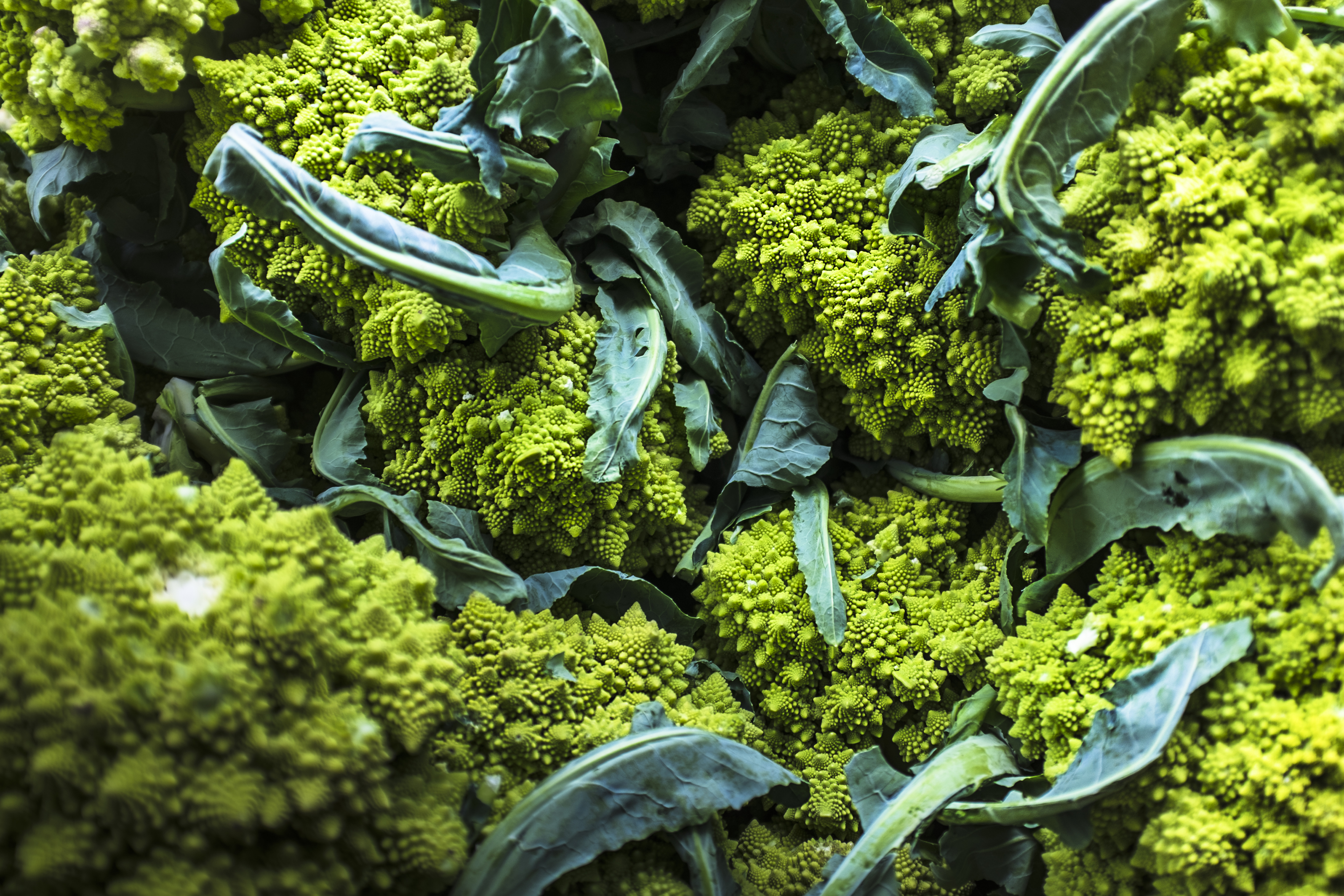
Cruciferous vegetables, such as broccoli, cauliflower, and Brussels sprouts, are rich in antioxidants and sulfur-containing compounds that support detoxification and reduce inflammation. These vegetables are also a good source of fiber, which promotes digestive health and helps maintain a healthy weight. Rheumatologists often suggest incorporating a variety of cruciferous vegetables into the diet to maximize their health benefits. These vegetables can be enjoyed roasted, steamed, or raw in salads, providing a nutritious and flavorful addition to meals.
13. The Hydration and Health Benefits of Water

Staying well-hydrated is crucial for individuals with arthritis, as it helps maintain joint lubrication and supports overall health. Water is the best choice for hydration, as it is calorie-free and essential for numerous bodily functions. Rheumatologists often emphasize the importance of drinking enough water throughout the day to support joint health and prevent dehydration. For those who find plain water unappealing, adding a splash of lemon or a few slices of cucumber can enhance the flavor and make it more enjoyable. Ensuring adequate hydration is a simple yet effective way to support arthritis management.
14. Avocado: Creamy Joint Soother
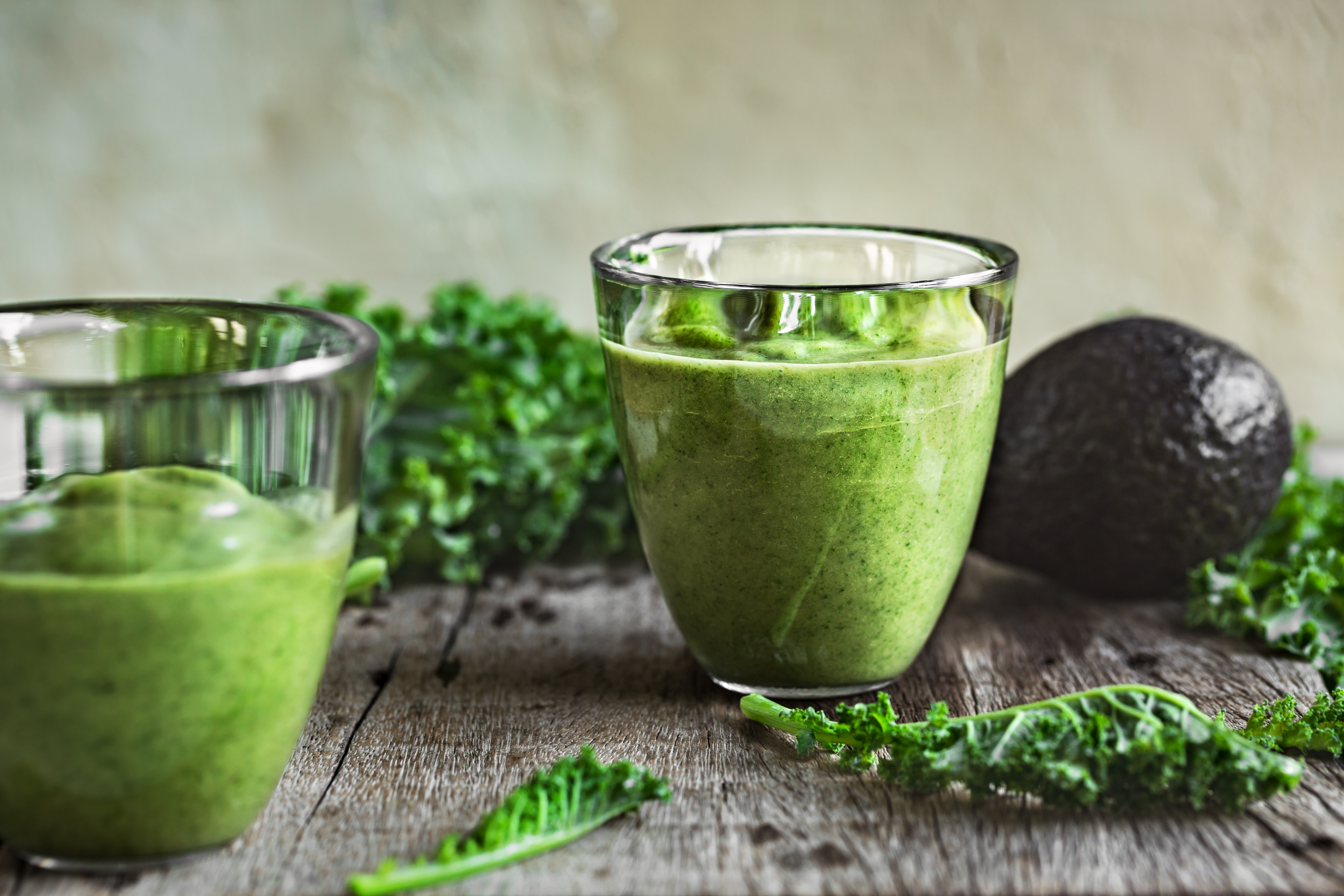
This rich, buttery fruit is a boon for arthritic joints. Avocados are packed with heart-healthy monounsaturated fats, which possess anti-inflammatory properties, and they are a good source of Vitamin E, an antioxidant that may help fight inflammation and support cartilage health. Furthermore, compounds like carotenoids (lutein) found in avocados have antioxidant effects. Enjoy slices on whole-grain toast, blended into smoothies for creaminess, or added to salads for a satisfying, joint-friendly fat source that helps your body absorb other fat-soluble nutrients.
15. Medicinal Mushrooms (Shiitake, Reishi, Lion's Mane): Fungi with Fortifying Benefits
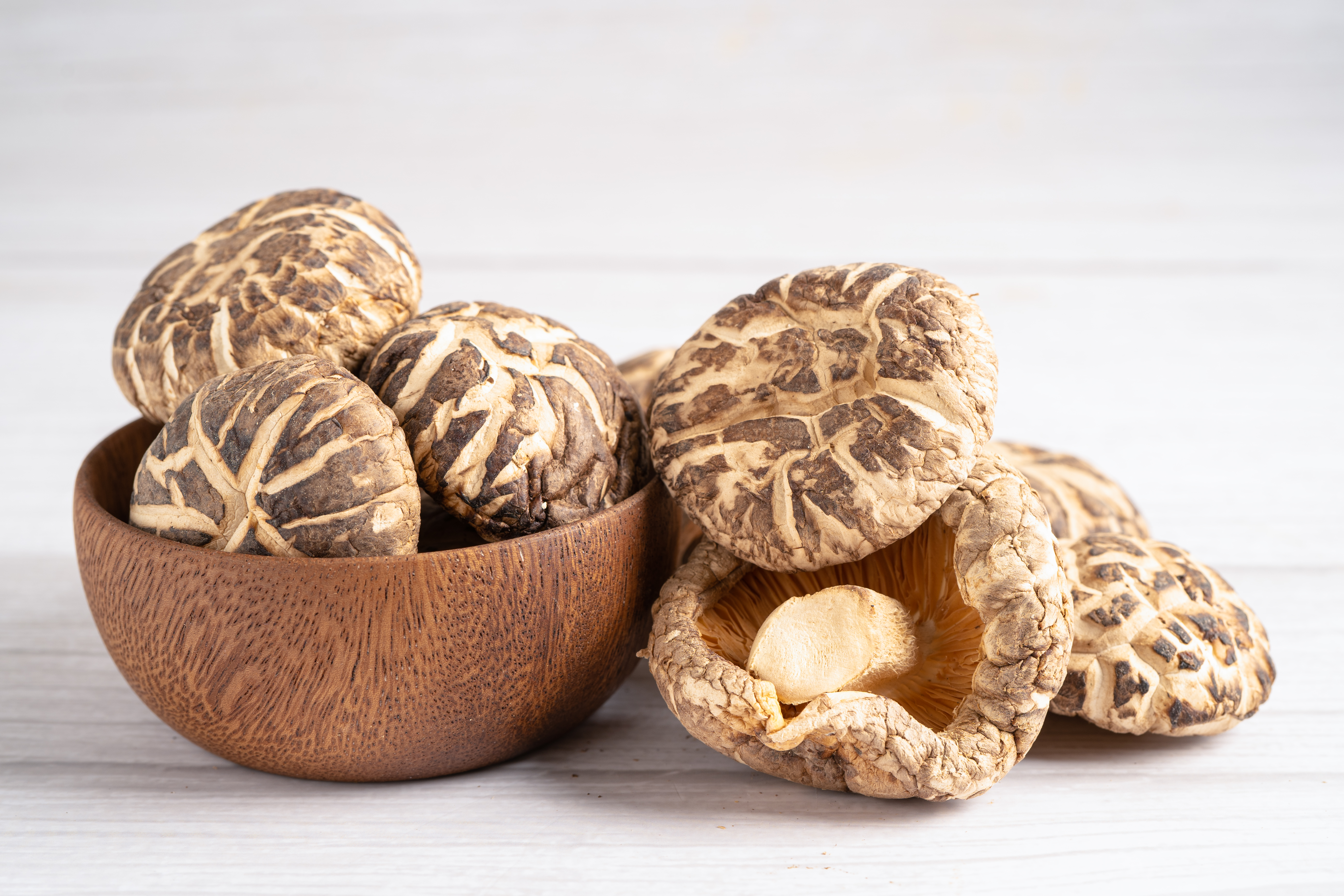
Beyond common button mushrooms, varieties like shiitake, reishi, and lion's mane have been valued in traditional medicine for centuries and are gaining scientific attention. They contain powerful compounds such as beta-glucans, triterpenes, and antioxidants like ergothioneine, which can help modulate the immune system and reduce inflammation. Sauté shiitake into stir-fries, sip reishi tea, or explore lion's mane supplements (with guidance) to tap into the unique anti-inflammatory potential of these remarkable fungi.
16. Dark Chocolate (70%+ Cacao): Indulgent Anti-Inflammatory

Yes, a little dark chocolate can be a friend to your joints! Choose varieties with at least 70% cacao content to benefit from their rich supply of flavanols and other antioxidants. These compounds have been shown to reduce inflammation, improve blood flow, and protect cells from damage. A small square daily can be a delicious way to satisfy a sweet craving while providing a dose of potent anti-inflammatory agents. Just remember, moderation is key due to its calorie density.
17. Lentils & Beans (Pulses Power): Plant-Powered Inflammation Fighters
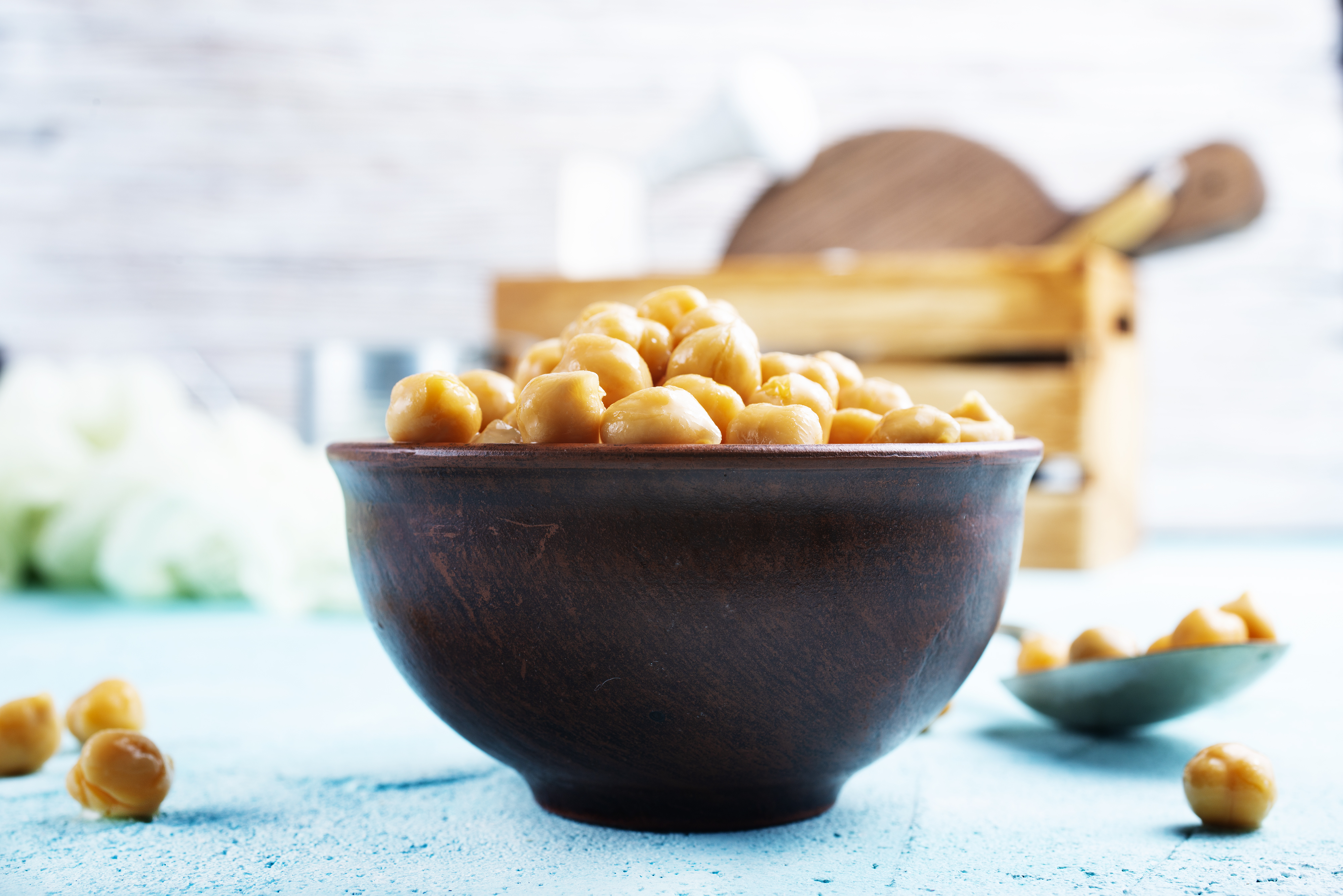
This humble family of legumes – including lentils, chickpeas, black beans, and kidney beans – are nutritional powerhouses for arthritis management. They are loaded with anti-inflammatory phytonutrients, antioxidants, and an excellent source of fiber, which supports a healthy gut microbiome (crucial for managing inflammation). Plus, they offer quality plant-based protein to support muscle strength around joints. Incorporate them into soups, stews, salads, or make bean-based dips for a budget-friendly, joint-supporting dietary staple.
18. Pineapple: Nature's Bromelain Boost

This tropical delight contains a potent enzyme called bromelain, renowned for its impressive anti-inflammatory and analgesic (pain-relieving) properties, particularly beneficial for osteoarthritis. Bromelain is thought to help reduce swelling and pain by influencing certain inflammatory pathways. Enjoy fresh pineapple as a snack, in fruit salads, or blended into smoothies. The core of the pineapple contains the highest concentration of bromelain, so don't discard it if you're juicing or blending for maximum effect!
19. Tart Cherries (Unsweetened): Ruby Red Relief

These vibrant fruits, especially in their unsweetened juice or concentrated form, are packed with anthocyanins – powerful antioxidants that give them their deep red color and potent anti-inflammatory effects. Numerous studies have highlighted tart cherries' ability to reduce markers of inflammation and oxidative stress, potentially alleviating joint pain and stiffness, and even helping to manage gout attacks (a form of arthritis). A small glass of unsweetened tart cherry juice daily could be a game-changer.
20. Sweet Potatoes (Vibrant Varieties): Rooted in Wellness

Swap out regular white potatoes for their more colorful cousins. Sweet potatoes, especially the orange and purple varieties, are rich in beta-carotene (which your body converts to Vitamin A) and anthocyanins (in purple ones), both powerful antioxidants that help combat inflammation. They also provide a good dose of fiber and Vitamin C. Enjoy them baked, roasted, steamed, or mashed as a nutrient-dense, anti-inflammatory carbohydrate source that supports overall joint health and vitality.
21. Cinnamon (Especially Ceylon): Spice of Joint Life
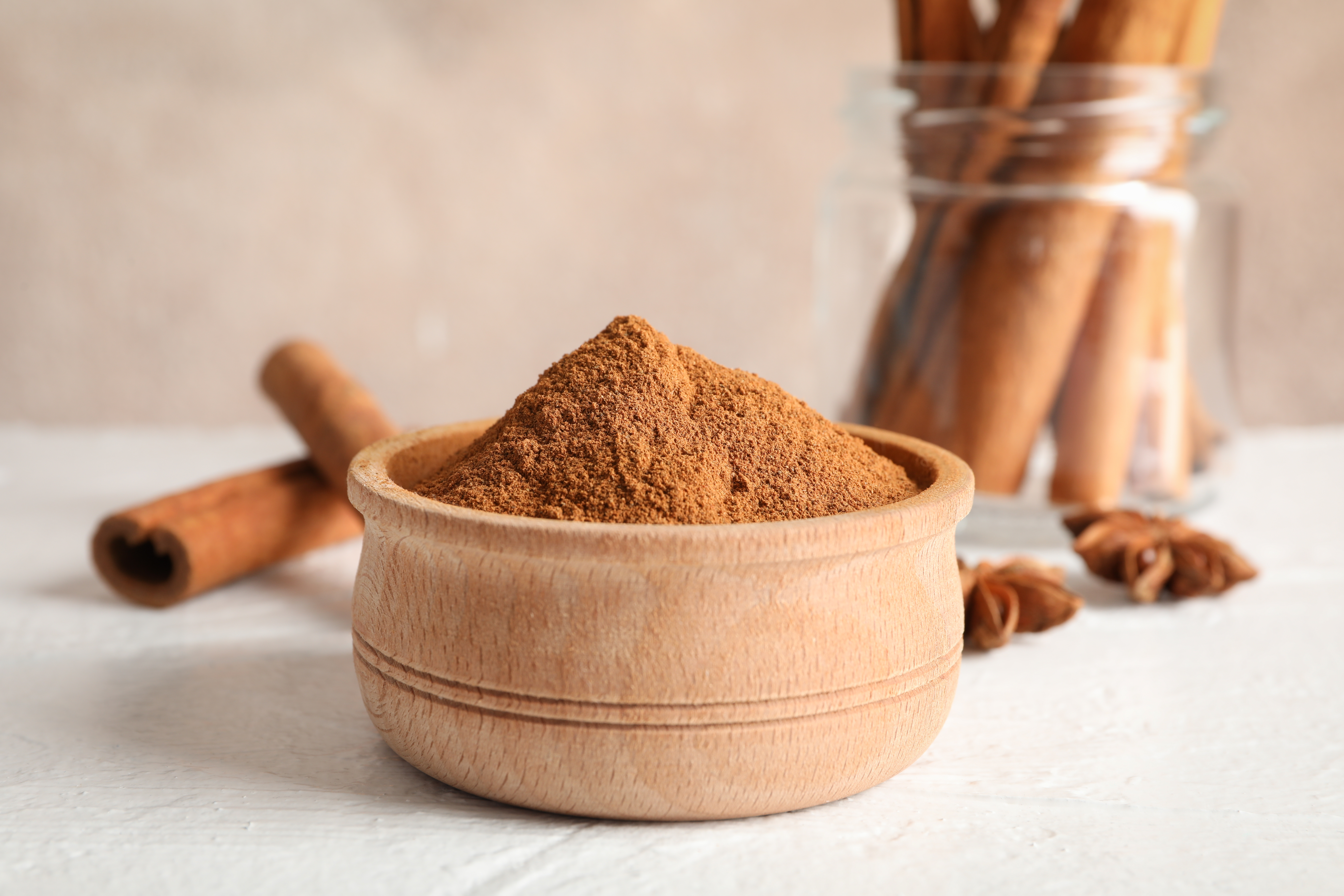
This warming, aromatic spice is more than just a flavor enhancer. Cinnamon, particularly "true" Ceylon cinnamon, contains cinnamaldehyde and other compounds with notable anti-inflammatory and antioxidant properties. Studies suggest it can help reduce inflammatory markers and oxidative stress. Sprinkle it on your oatmeal, add it to smoothies, or stir it into your tea or coffee. It’s a simple, delicious way to incorporate a spice with significant potential for soothing inflammation throughout the body.
22. Broccoli Sprouts: Tiny Titans of Detox & Defense
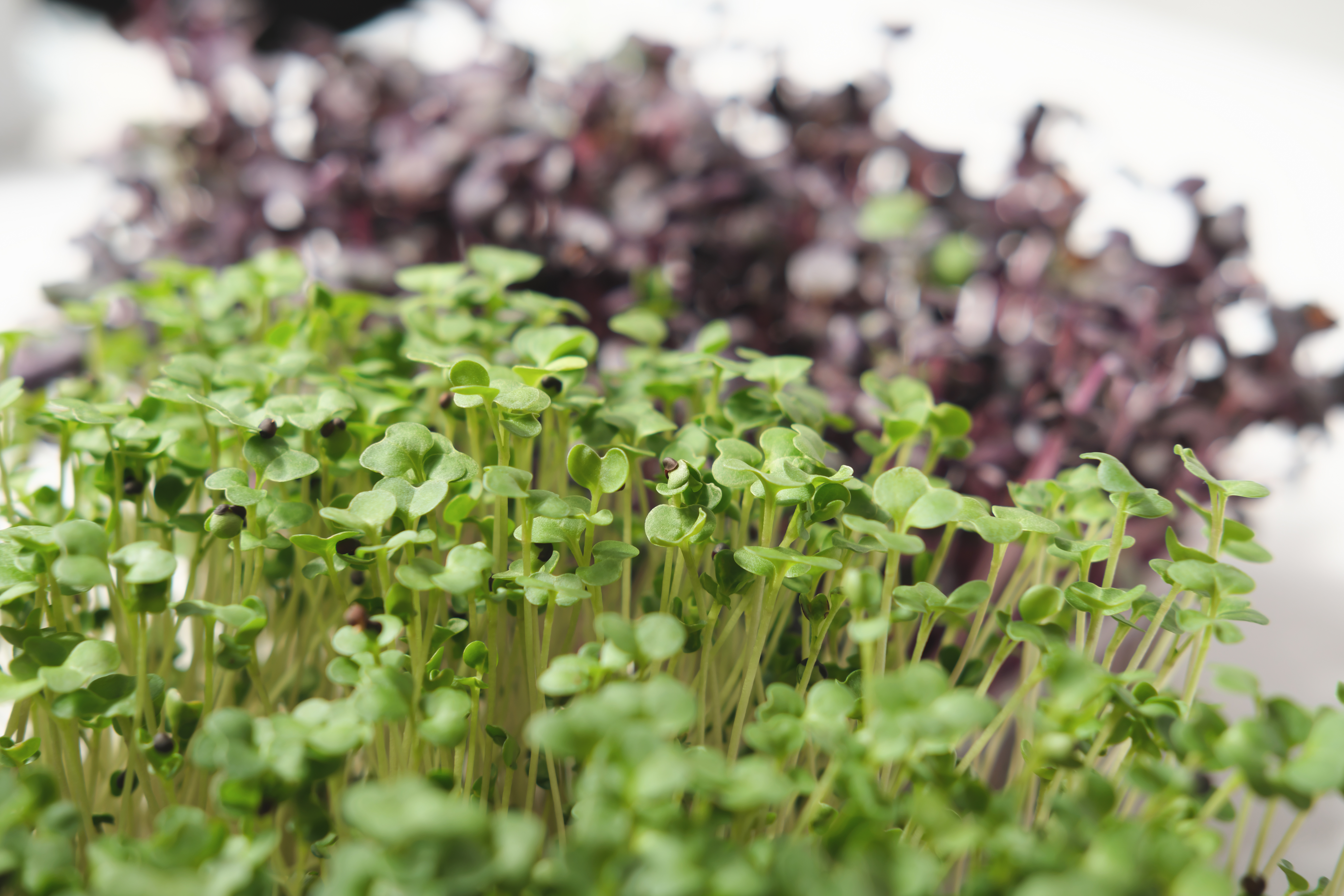
While mature broccoli (already on your cruciferous list) is beneficial, tiny broccoli sprouts are nutritional Goliaths, containing exceptionally high levels of sulforaphane – up to 100 times more than mature broccoli. Sulforaphane is a potent compound that activates detoxification pathways and exhibits powerful anti-inflammatory and antioxidant effects, potentially protecting cartilage and reducing joint inflammation. Add a small handful of these mildly peppery sprouts to salads, sandwiches, or smoothies for a concentrated health kick.
23. Pomegranate: Jewel of Joint Protection
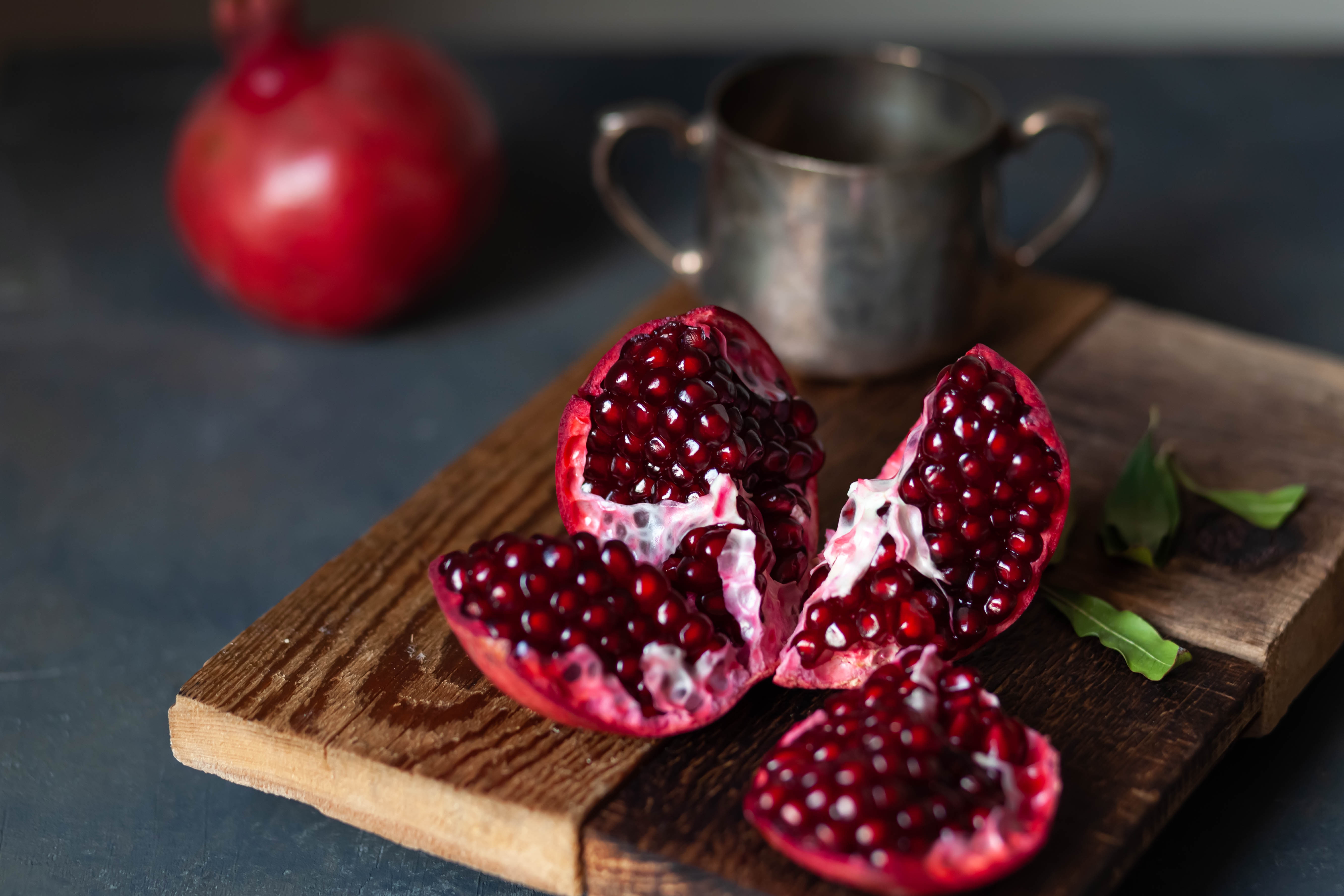
This ancient fruit is a treasure trove of unique and powerful antioxidants, particularly punicalagins and anthocyanins, which have demonstrated significant anti-inflammatory effects. Studies suggest that pomegranate extract or juice can help block the production of inflammatory enzymes and may protect cartilage from degradation, making it a promising food for arthritis management. Enjoy the jewel-like seeds in salads or yogurt, or sip on 100% unsweetened pomegranate juice for a potent dose of these joint-protective compounds.
24. Ginger (Fresh Root & Spice): The Fiery Inflammation Fighter

Beyond its culinary zest, fresh ginger root is a centuries-old remedy packed with potent anti-inflammatory compounds like gingerol. These substances are believed to inhibit the same inflammatory pathways as some arthritis medications. Grating fresh ginger into teas, stir-fries, or smoothies can help reduce joint pain and stiffness. Studies suggest regular ginger consumption may significantly decrease markers of inflammation in the body. This versatile spice not only adds a warming kick to your meals but also serves as a powerful, natural ally in your daily fight against arthritic discomfort, endorsed by traditions and emerging science.
25. Red Bell Peppers: Vitamin C & Antioxidant Champions

Vibrant red bell peppers are more than just a colorful addition to your plate; they are exceptionally rich in Vitamin C, a crucial nutrient for collagen production – the main protein in joint tissues and bone. Adequate Vitamin C is essential for repairing and maintaining healthy cartilage. Furthermore, red bell peppers are loaded with powerful antioxidants like capsanthin, which help combat oxidative stress and reduce inflammation throughout thebody. Enjoy them raw in salads for maximum Vitamin C, or roasted to bring out their natural sweetness, making them a delicious joint-supporting food.
26. Bone Broth (Slow-Simmered Goodness): Gut & Joint Support
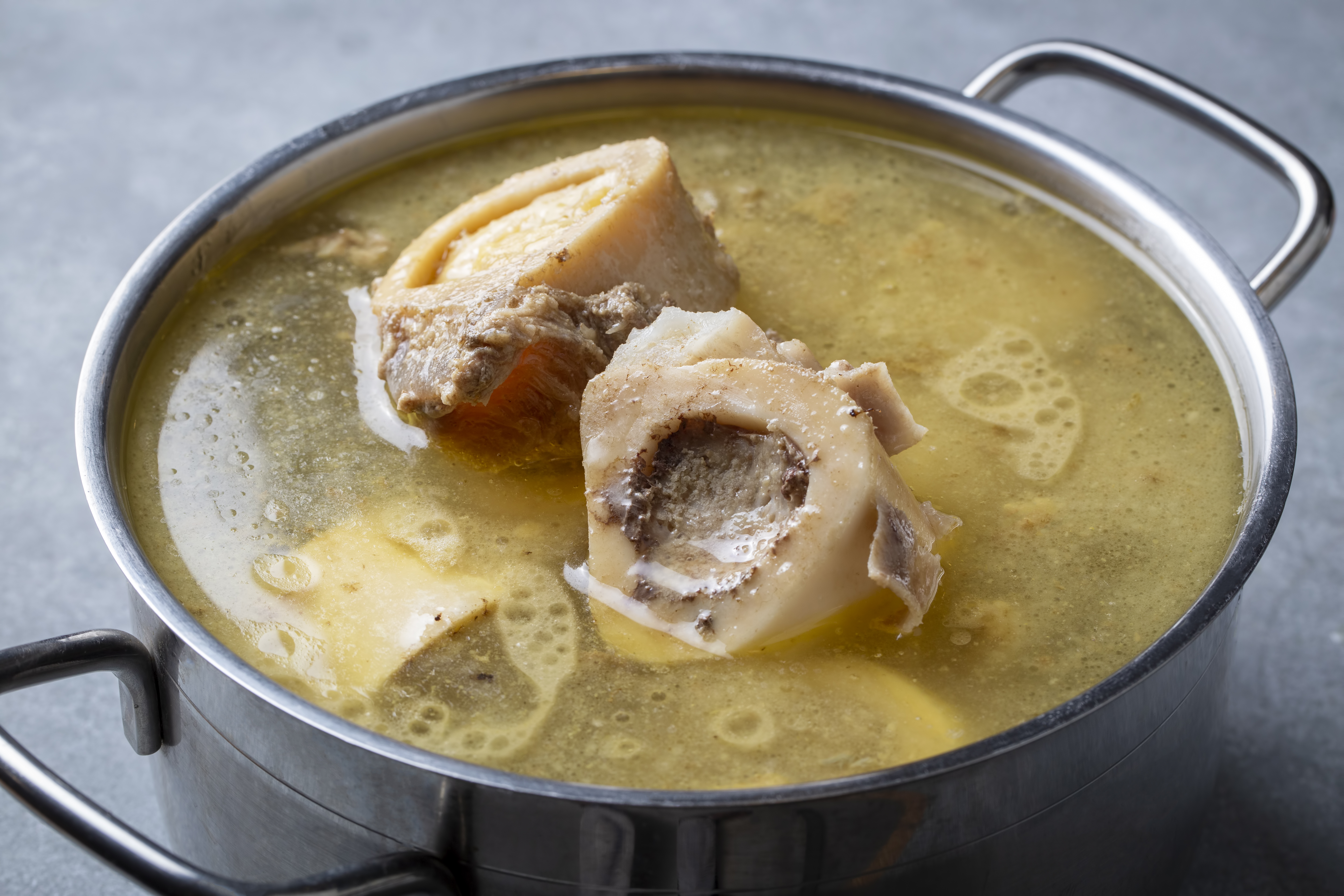
While not a direct cure, slow-simmered bone broth can be a comforting and potentially beneficial addition to an arthritis-friendly diet. It’s a natural source of collagen, gelatin, and amino acids like glycine and proline, which are building blocks for connective tissues. Many rheumatologists also emphasize gut health's role in managing systemic inflammation; bone broth is easily digestible and may help soothe the gut lining. Sipping on warm bone broth or using it as a base for soups and stews can be a nourishing way to support overall joint and digestive wellness.
27. Soy Foods (Tofu, Edamame, Miso): Plant-Powered Inflammation Relief
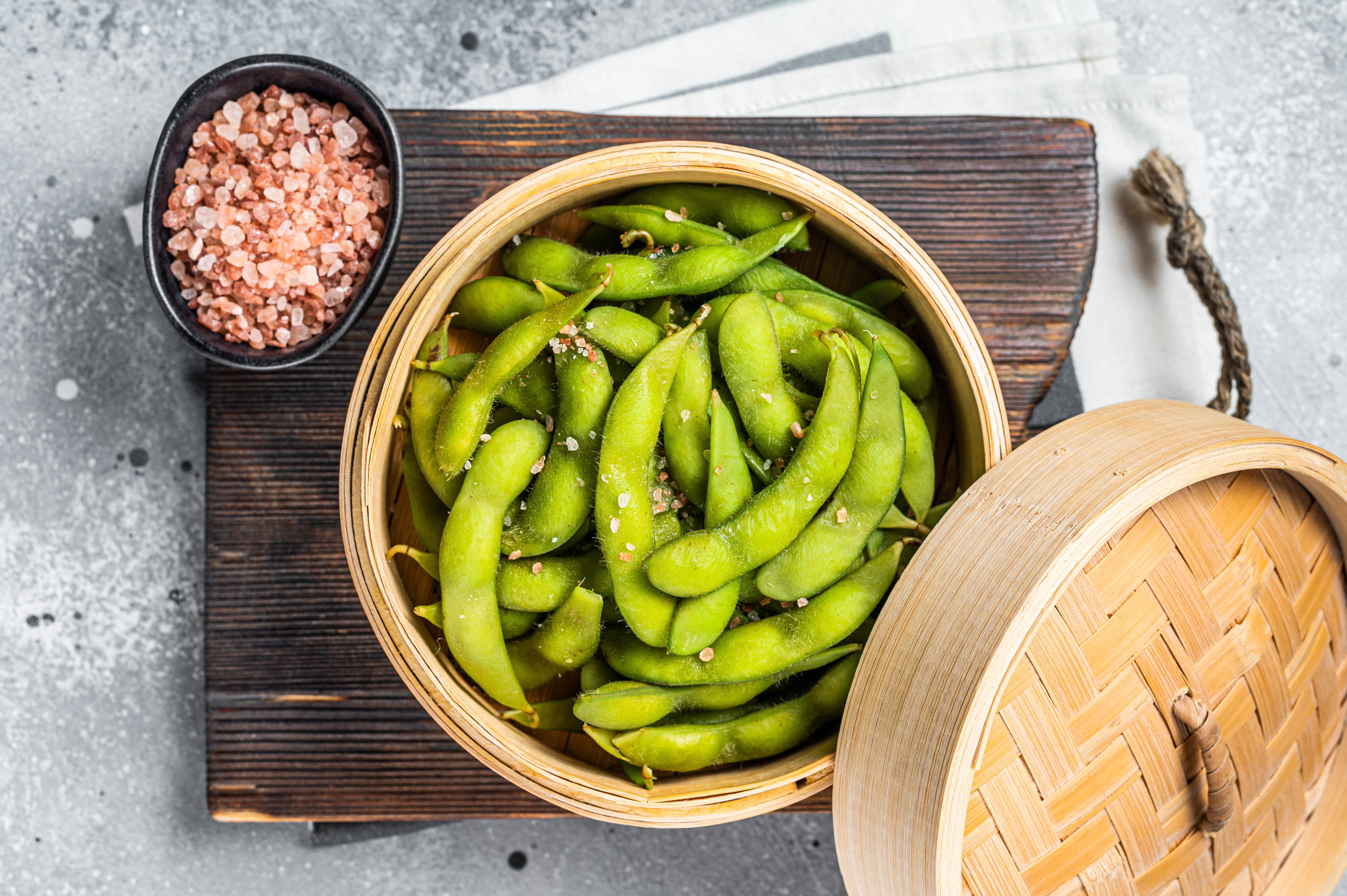
Soy-based foods like tofu, edamame, tempeh, and miso are rich in isoflavones, plant compounds with notable anti-inflammatory properties. Research suggests these isoflavones can help modulate the body's inflammatory response, potentially easing arthritis symptoms, particularly in conditions like rheumatoid arthritis. As excellent sources of plant-based protein and fiber, soy foods also contribute to overall health and can be a valuable part of an anti-inflammatory diet. Incorporating these versatile foods can offer a gentle, natural way to support joint comfort and reduce systemic inflammation, especially when replacing red or processed meats.
28. Green Lipped Mussels: New Zealand's Joint Secret
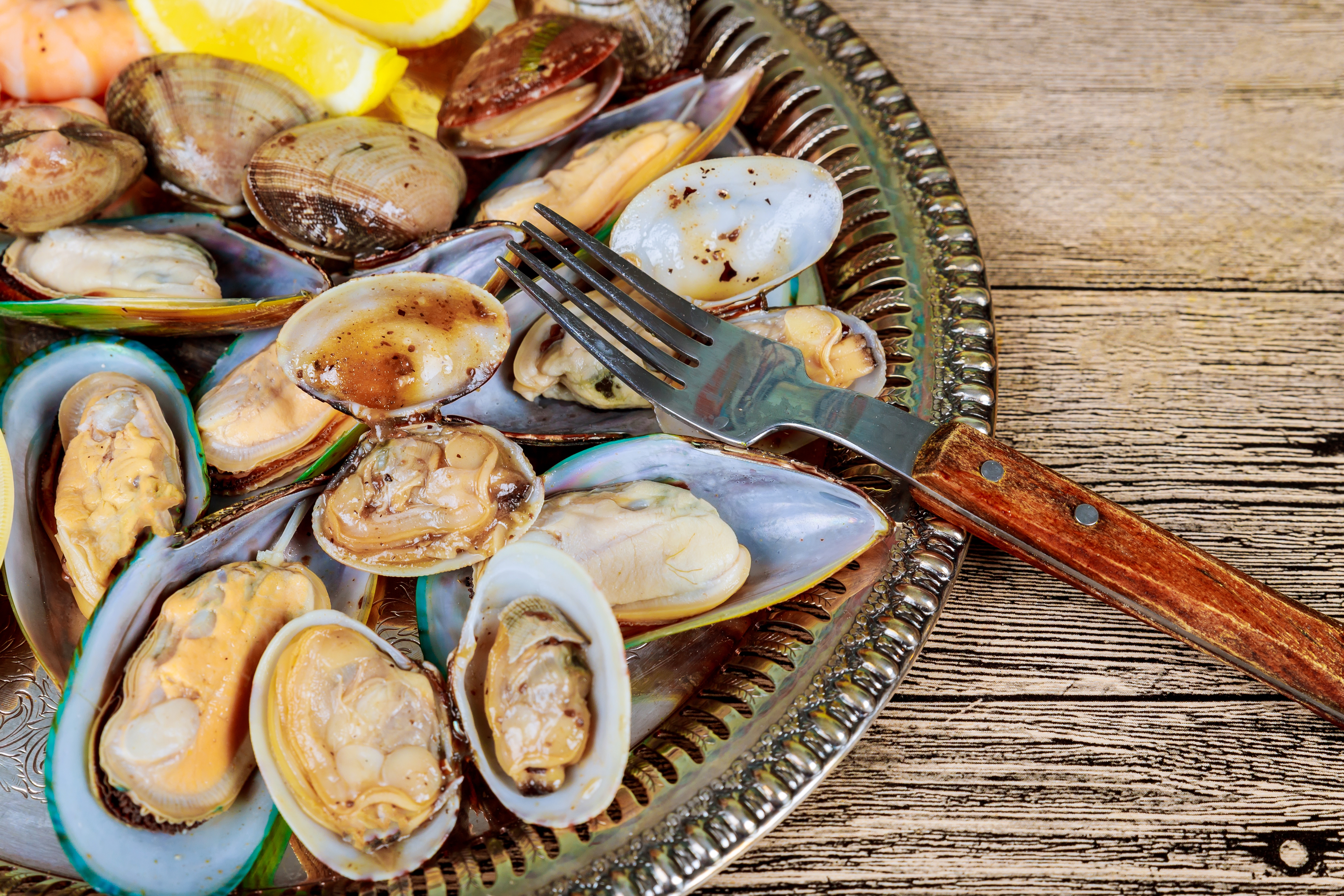
Hailing from the pristine waters of New Zealand, green-lipped mussels (Perna canaliculus) are a unique seafood powerhouse specifically recognized for their joint health benefits. They contain a rare combination of omega-3 fatty acids, including eicosatetraenoic acid (ETA), alongside other lipids and glycosaminoglycans (GAGs), which exhibit potent anti-inflammatory and cartilage-protective effects. While often taken as a supplement, fresh or frozen mussels, when available, can be steamed and enjoyed. This "beyond the obvious" seafood offers a targeted natural approach to reducing joint pain and inflammation, backed by growing research.
29. Papaya: The Tropical Enzyme Soother
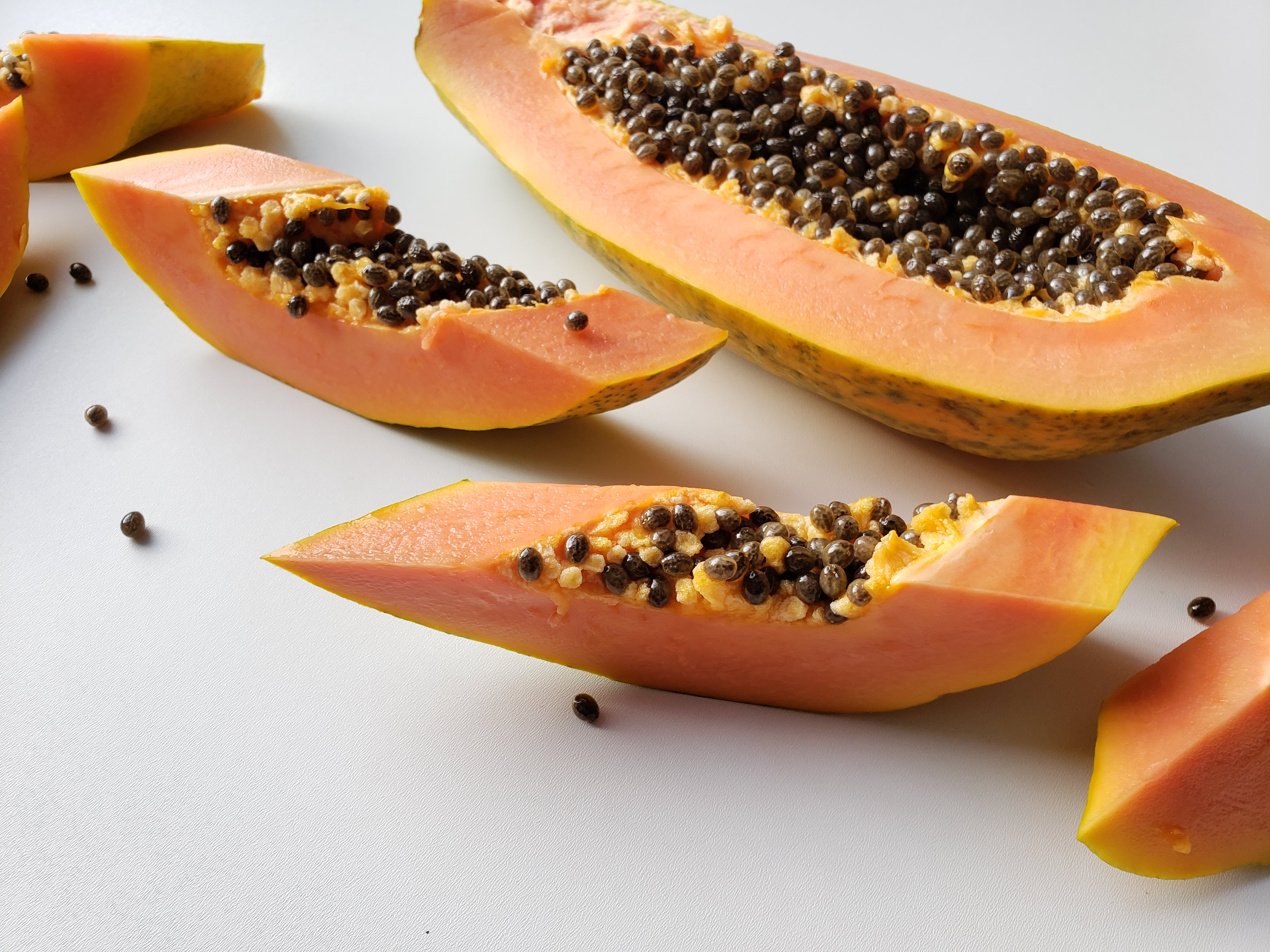
This luscious tropical fruit isn't just delicious; it’s packed with papain, a powerful digestive enzyme with significant anti-inflammatory properties, similar to bromelain in pineapple. Papain can help break down proteins that may contribute to inflammation and can aid in reducing swelling and pain in arthritic joints. Papaya is also an excellent source of Vitamin C and antioxidants like beta-carotene, further supporting immune function and combating oxidative stress. Enjoying fresh papaya as a snack, in smoothies, or fruit salads can be a sweet and effective way to help manage arthritis symptoms.
30. Brazil Nuts: Selenium Power for Antioxidant Defense

Just one or two Brazil nuts a day can provide your full daily requirement of selenium, a crucial trace mineral that plays a vital role in the body's antioxidant defense system. Selenium is a component of glutathione peroxidase, an important antioxidant enzyme that helps protect cells from damage caused by free radicals, which can exacerbate inflammation in arthritis. Maintaining adequate selenium levels is important for immune function and may help reduce oxidative stress associated with arthritic conditions. It’s a simple, potent addition for overall joint support.
31. Cloves (Spice): Nature's Antioxidant Superstar
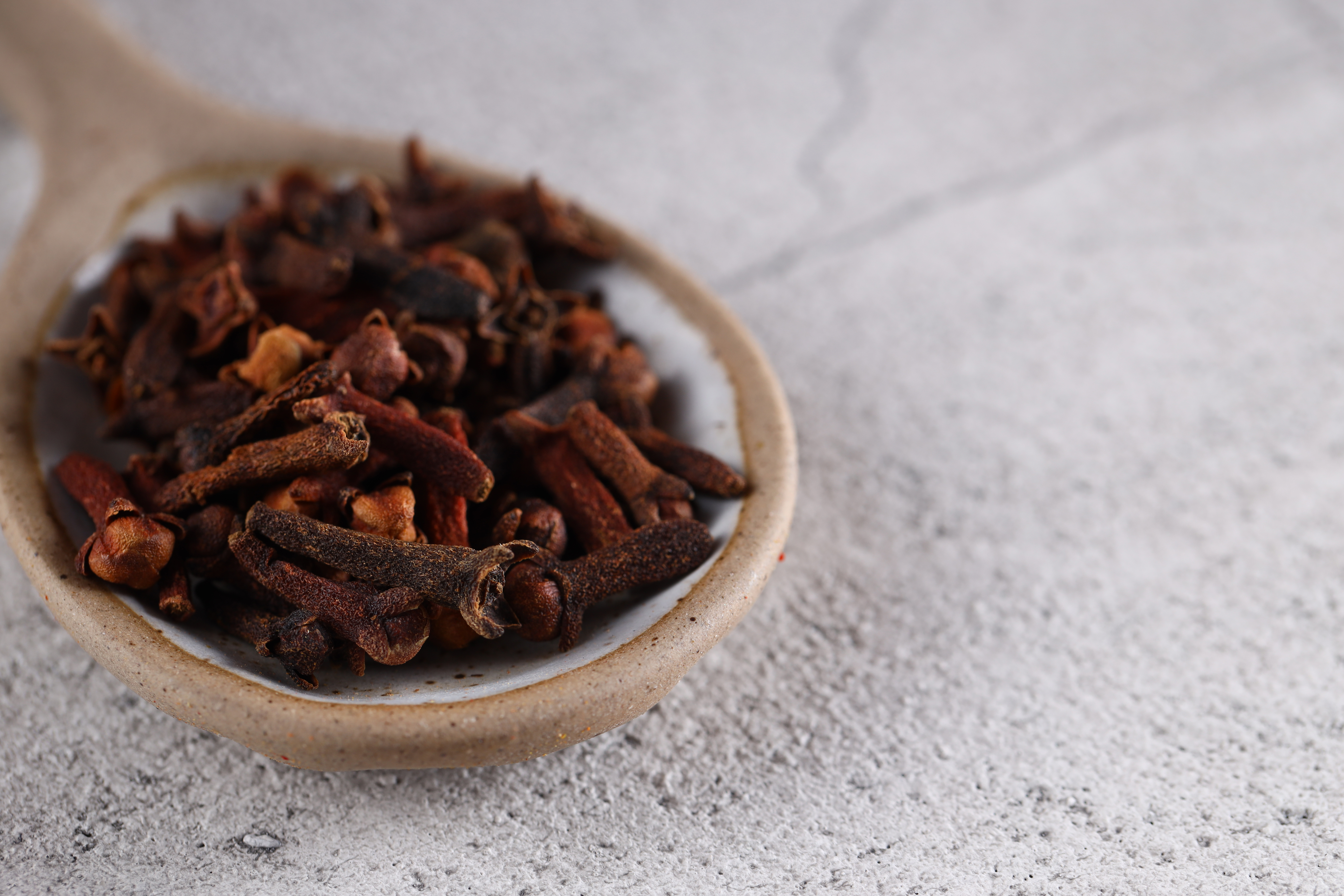
Often associated with festive baking, cloves are one of the most potent antioxidant spices available, boasting an incredibly high ORAC (Oxygen Radical Absorbance Capacity) value. Their primary active compound, eugenol, exhibits significant anti-inflammatory and analgesic (pain-relieving) properties. While used in small quantities, incorporating ground cloves into your spice blends for warming dishes, teas, or even baked goods can contribute to your overall anti-inflammatory intake. This humble spice packs a powerful punch against the oxidative stress that can worsen arthritis symptoms, making it a valuable addition to your culinary arsenal.
32. Beets & Beetroot Juice: Earthy Elixir for Inflammation
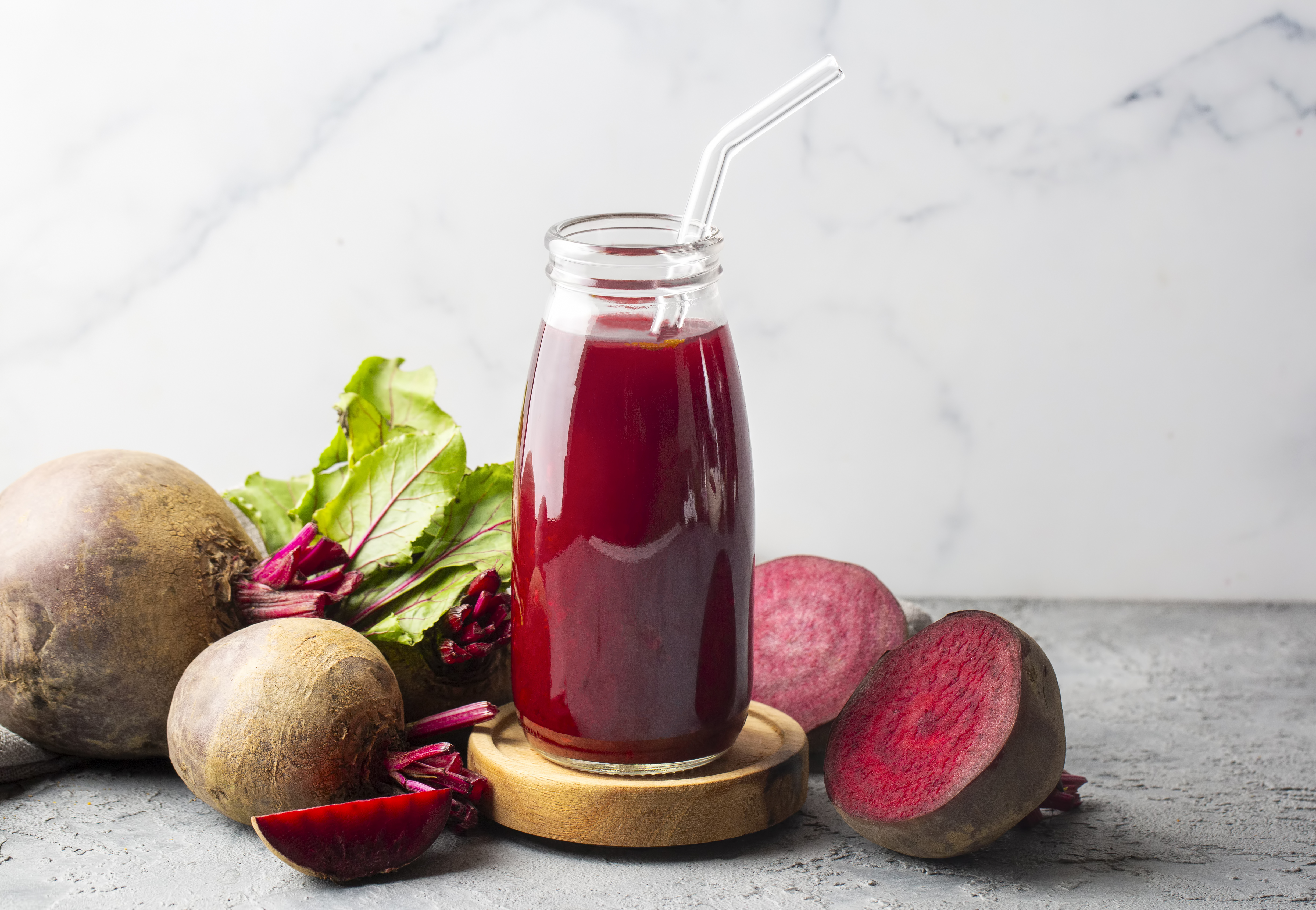
The vibrant, earthy beet is a nutritional powerhouse, thanks to unique phytonutrients called betalains, which give beets their deep red color and possess potent antioxidant and anti-inflammatory properties. Studies suggest betalains can help reduce inflammatory markers in the body. Additionally, beets are rich in nitrates, which can improve blood flow. Enjoying roasted beets, adding them to salads, or sipping on beetroot juice (in moderation due to sugar content) can be a delicious way to harness these natural anti-inflammatory benefits and support overall joint health.
33. Rosehips: Nature's Vitamin C & Joint Comfort Bomb

The fruit of the rose plant, rosehips are exceptionally rich in Vitamin C—far more than citrus fruits—and contain a unique galactolipid compound known as GOPO. Research, particularly on a specific standardized rosehip powder, has shown that GOPO has significant anti-inflammatory properties and can help reduce joint pain and stiffness, particularly in osteoarthritis, by inhibiting white blood cell migration to inflamed areas. Rosehips can be enjoyed as a tangy tea or taken as a powder or supplement, offering a powerful, natural boost for joint comfort.
Your Kitchen's Role in Easing Arthritis

Incorporating these 33 culinary treasures into the diet can offer significant benefits for individuals with arthritis, helping to reduce inflammation and support overall joint health. While each food item has unique properties, they all contribute to a balanced and nutritious diet that can complement conventional treatments. Rheumatologists often advise patients to experiment with different foods and recipes to find what works best for their individual needs and preferences. By making small, gradual changes to the diet, individuals can enjoy the delicious flavors and health benefits of these culinary treasures, ultimately supporting their journey toward improved joint health and well-being.